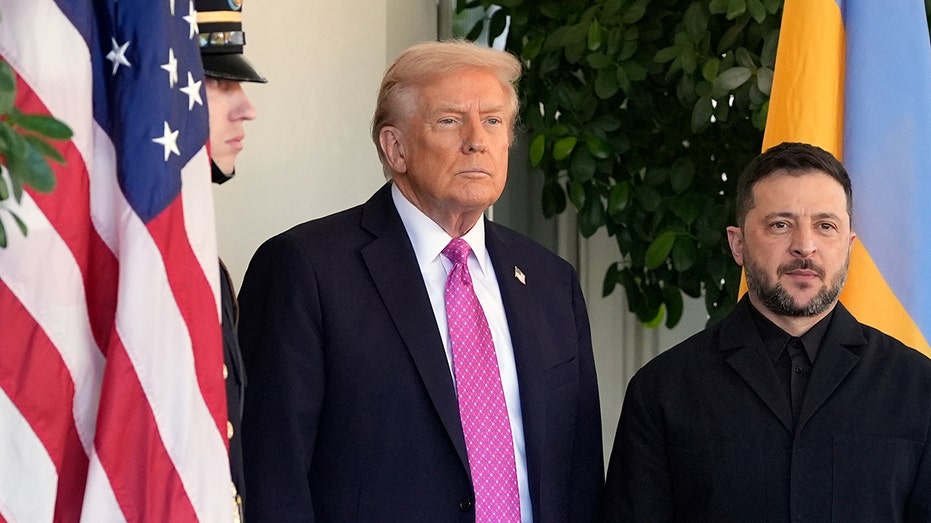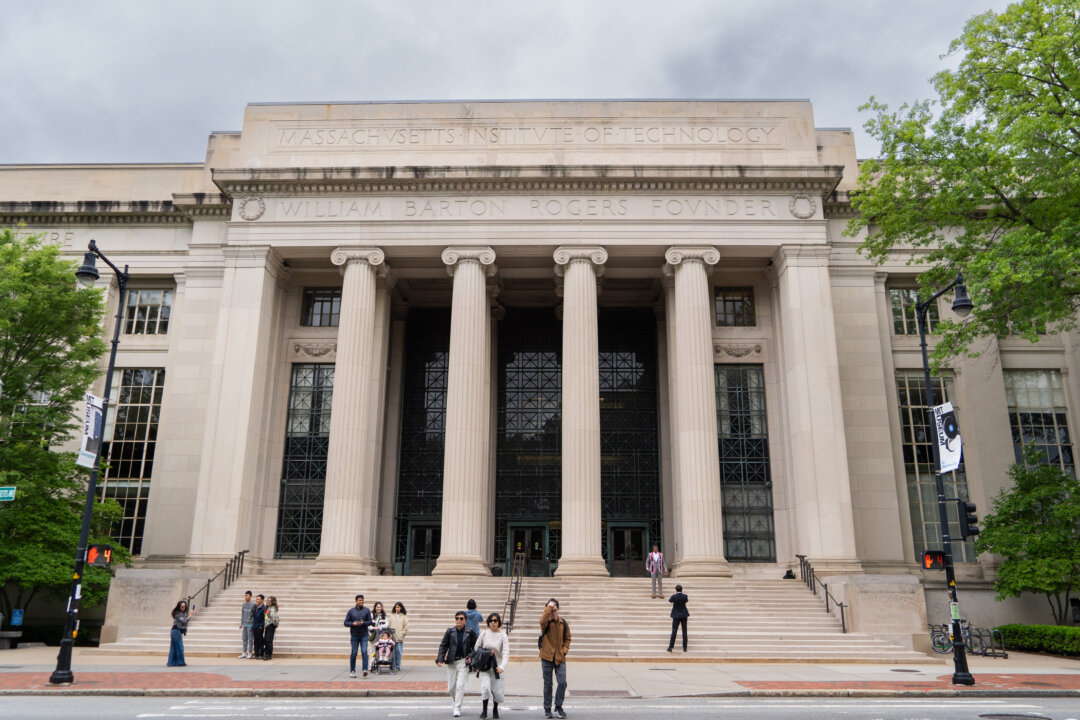The federal government shutdown has clobbered Washington — and dramatically amped up the split-screen effect that’s been in place since Donald Trump’s second inauguration.
On the one hand, there’s a president determined to leave a bigger physical mark on the District of Columbia than any chief executive since Franklin Roosevelt. Trump has railed against graffiti, non-functioning fountains, and unattractive federal architecture, all stuff the blue city’s locals might appreciate coming from anyone else. This summer, he asked Congress for $2 billion to spruce up a national capital that should be “the envy of the world,” as the White House put it when it took over the Metropolitan Police Department in August.
On the other hand, there’s the Trump effect on the actual economy of the Washington area. Even before the shutdown and the president’s push for new layoffs, the numbers were cataclysmic. The District’s chief financial officer has estimated that a fifth of the 200,000 federal jobs in the city will go away. There are similarly grim projections for federal contracting. The housing market was already softening, pre-shutdown. The unemployment rate was up nine times as much as the rest of the country. And now the closure of the Smithsonian and the cancellation of routine federal meetings is battering the hospitality industry.
In an almost too-perfect irony, word that the administration might defy the law requiring it to pay furloughed feds leaked the very same week that photos appeared of an Oval Office mock-up of the vast triumphal arch that the president aims to build right across the Potomac from the Lincoln Memorial to celebrate America’s 250th birthday.
As an economic matter, the question is tricky: Can you have a shiny, crime-free city full of head-turning new memorials if you’ve just taken a jackhammer to that city's major industries? In most places where the top employers have undergone similar tumult — Detroit when the auto industry fell, say — it hasn’t exactly led to a golden era of tourism, safety, and beauty.
Consider the Metro system, where Trump has deployed the National Guard. Agree with the deployment or not, it’s an indication that the health of the subway is important. Now, since the shutdown began, Metro spokeswoman Christine Detz told me this week, overall ridership is down 7 percent and “taps” from federal employees are down 24 percent. (Metro is able to track federal ridership because of a program where feds can get Metro fare taken from their paychecks.) Given that the system relies on fees from riders, the loss of all those fares is a lot more important than a few dozen guardsmen pacing up and down the platforms.
But even if the shutdown ended tomorrow, the uncertainty about job security and mass firings won’t end, nor will the economic effects from nine months of shocks to the workforce.
“People are missing paychecks,” said Yesim Sayin of the D.C. Policy Center. “It’s one thing when you say, ‘OK I’m gonna miss a couple of paychecks but I’ll catch up’” because of the law requiring back pay. “It’s another when you don’t know, or when you wonder if you’re going to get a red slip. People will reduce their consumption.” Which, in turn, slashes the tax revenues meant to pay for safe streets and clean parks. (The city agency that releases revenue data says they won’t have shutdown-related numbers until next month.)
As a political matter, the question may be even tougher: If Washington needs a robust federal workforce in order to remain a healthy, functional region, does it have any allies in that quest?
The Republicans clearly are not. Beyond the Trump administration moves to radically slash the workforce — which have yet to fully show up in unemployment data, since the fork-in-the-road departures didn’t officially leave the payroll until this month — the GOP has also long championed efforts to relocate vast sectors of the government to other parts of the country, part of a concerted effort to move workers away from the high costs and liberal milieu of the D.C. area.
But if most Democrats have stood with the city on matters of self-rule, the shutdown shows the limits of counting on them to keep the city’s biggest employer open for its own sake.
The party opted for the confrontation that caused the shutdown, knowing full well that the collateral damage would fall disproportionately on the D.C. area. Notably, the all-blue congressional delegation from the surrounding Maryland and Virginia suburbs — whose residents actually have a vote, and are about as likely to be federal employees — hasn’t broken with the party over the shutdown. Nor has D.C.’s elected leadership been loudly demanding an off-ramp in the name of the local job market.
In fact, America has always had an uncomfortable relationship with the idea that Washington is recession-resistant. Even other wealthy regions go through boom-bust dramas (like Silicon Valley) or face decades of decline (like the Rust Belt). Unlike those other places, the capital area has no experience with having to entirely reinvent its economy, with all the years of pain that entails.
Historically, Democrats like the former West Virginia Sen. Robert Byrd have been just as eager as Republicans to see some of those Beltway-based jobs get sent their way. And D.C., famously, doesn’t get a vote in the matter. That lack of representation is even more pronounced this year as nonvoting Congressional Delegate Eleanor Holmes Norton, who once proved adept at skillfully playing a lousy hand on Capitol Hill, struggles with age-related issues.
The case that people like her could be making, Brookings Institution fellow Tracy Hadden Loh told me, is actually not one that depends on begging the feds to keep jobs in place in order to prop up the municipality.
“There’s this critique out there that the DMV is too dependent on the federal government,” said Loh, who leads a project that compiles real-time economic data on the region. “You could also make the opposite argument -- that the federal government is dependent on having a stable, low crime, highly educated well run region to exist in, and that they pay no property taxes to get that.”
For years, Washington’s local leadership has talked up schemes to move beyond the federal government: It was going to go big into tourism, or sports, or education; late last month, Mayor Muriel Bowser was talking up her “growth agenda” that included plans to spur tech industry startups.
“ We already knew coming out COVID, we didn't think that the federal government was going to come back into the office,” said Nina Albert, the city’s deputy mayor for economic development. “So we had to think about pivoting.” Locals may not like to admit it, but the robustness of that workforce would also be an issue even if Trump hadn’t been elected. With an average age of nearly 50, it’s well older than the national average; federal workers also do a lot of the sorts of jobs that are likely to be disrupted by AI.
Unfortunately for Washington’s would-be pivoters, the shutdown shows how tenuous some of those ambitions are: Hospitality has been hammered by the closure (and prior Trump-era bad vibes). Efforts to lure far-flung universities’ satellite campuses will be hampered by the freezing of the government that those schools’ students want to study (not to mention the national climate of cuts to university budgets). And a lot of local tech firms, when you scratch beneath the surface, are in Washington because they want to have Uncle Sam as a customer, harder work when the purchaser is on furlough.
Loh told me she’s not entirely gloom and doom: the Beltway is home to one of the country’s best-educated workforces. The market won’t let that go to waste — even if the chaos facing federal employees is slowing the annual inflow of talented young graduates into the capital.
But the thing about big, long-term municipal transformations is that they take decades and leave huge amounts of collateral damage. In the short term, it’s tough to turn yourself into a Trumpian destination while also trying to figure out where everyone is going to work. And it’s harder still when you’re short of friends to help you ride out the storm.
.png)













 English (US)
English (US)